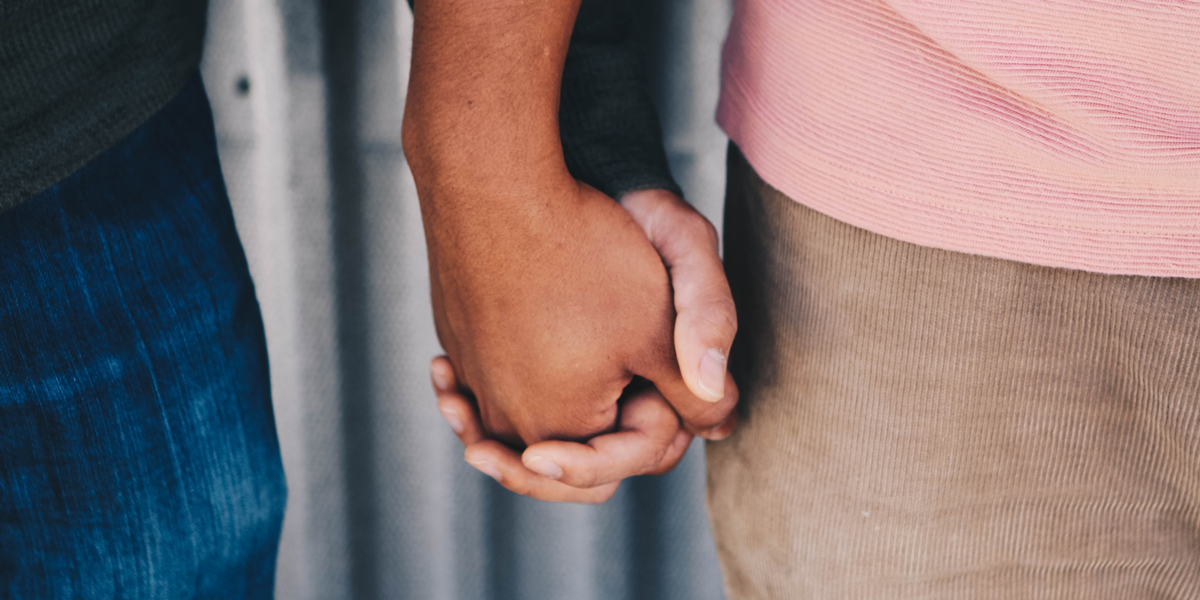
I was recently proud to join hundreds of others in signing an open letter condemning Anti-Semitism, Islamophobia and all other forms of discrimination.
The fact that such a letter needed to be written is deeply troubling. However, the world has been witness to the horrific consequences of remaining silent when the beast of race-based hatred begins to stir.
The great attraction of the statement I signed lay in its embrace of a positive principle that extends to every person – irrespective of their identity, conduct or circumstances. The principle of ‘respect for persons’ is the foundation upon which all human rights ultimately rest. It is an affirmation that every person has an irreducible, intrinsic dignity that cannot be reduced or forfeited. Although the rising incidence of Anti-Semitism may have prompted the statement, its concern extends to all who are at risk of harm.
Yet, what exactly is this harm? And how do we properly distinguish between vile acts of Anti-Semitism, on the one hand, and mere criticism on the other? For example, is holding Hamas accountable for the death of innocent non-combatants either ‘Anti-Palestinian’ or ‘Islamophobic? I think not. Nor is it Anti-Semitic to hold the State of Israel to account for acting in conformance with the laws of armed conflict. Both can be held accountable to the same standard without denying the intrinsic dignity of any individual or group.
Expressing sympathy for the plight of ordinary Palestinians, caught in the crossfire of an historically intractable dispute, does not amount to Anti-Semitism. Nor is it ‘genocidal’ to support the existence of the State of Israel (even while condemning many of the actions of its government).
Anti-Semitism is a very distinctive and potent form of evil. It denies the full and equal humanity of Jewish people – and endorses the destruction of their religion, culture, history and bodies. It has its own recognisable symbols – the Nazi Swastika, the ‘Heil Hitler’ salute (and associated symbology) – and revels in the despicable iconography of gas chambers and other elements in the apparatus of the Holocaust. It should be monitored and restrained with every ounce of energy and vigilance we can bring to bear. For where Anti-Semitism lives so there breeds all the other cesspools of hatred and despair.
So, it is unbearably sad when people loosely apply the label ‘Anti-Semitic’ on any occasion where Jewish people experience even the slightest form of annoyance, anger or discomfort.
We have been witness to an example of such ‘fast and loose’ language in the last couple of days. The ‘trigger’ incident was a decision by three actors to wear Palestinian Keffiyeh during the curtain call for Sydney Theatre Company’s opening performance of Chekhov’s The Seagull. The actors took this action without STC’s knowledge and without the support of the other cast members. Whether one agrees with the sentiment behind that statement is beside the point. In practice, they hijacked the company’s stage to make an entirely private, political statement. Now everyone else is left to pick up the pieces.
STC’s audience, supporters and donors are entitled to be annoyed by what occurred. So are the Board, management and members of the STC who had no knowledge of the planned stunt. Yet, nothing that was done on the night amounts to an act of Anti-Semitism. Naïve, perhaps. Unauthorised … certainly! Anti-Semitic … not at all.
To apply that label in the current circumstances is understandable when one considers the raw nerves and ancestral fears that are chafed in response to rising incidents of actual Anti-Semitism. However, over-reacting in this case (or others like it) brings about its own damage – especially when one part of our diverse, multicultural community bands together to boycott (‘cancel’) what it finds offensive. This approach did not help the cause of Christians and Muslims who have sought to censor those who offend or criticise. And I doubt that it will help the Jewish community. A diverse and vibrant community is made to seem monolithic in its outlook and concerns – separate from the whole.
I do not know if there are any Anti-Semites working at STC. However, I would be amazed if there were not at least some ardent critics of Israel (as there are amongst many Jewish people – the world over). But to be a critic of Israel is not the same as being an ‘Anti-Semite’. Of course, one can be both – but the distinction is vital and we all need to discern and apply the difference
Jewish people have every right to speak out when offended (a right we all enjoy). In doing so, they are often driven by fears grounded in millennia of persecution culminating in the Nazi’s ‘final solution’.
We should never be silent or indifferent in the face of Anti-Semitism. However, I fear that being fast and loose in labelling events and people as ‘Anti-Semitic’ risks undermining the significance of that terrible point in human history, which we must never do.
For the Holocaust stands for far more than the fate, alone, of the Jewish people. It is a potent warning of what horrors lurk within the human psyche and the power of that warning must never lose its place in humanity’s collective memory – for it threatens us all.

BY Simon Longstaff
After studying law in Sydney and teaching in Tasmania, Simon pursued postgraduate studies in philosophy as a Member of Magdalene College, Cambridge. In 1991, Simon commenced his work as the first Executive Director of The Ethics Centre. In 2013, he was made an officer of the Order of Australia (AO) for “distinguished service to the community through the promotion of ethical standards in governance and business, to improving corporate responsibility, and to philosophy.”
Ethics in your inbox.
Get the latest inspiration, intelligence, events & more.
By signing up you agree to our privacy policy
You might be interested in…
Big thinker
Politics + Human Rights
Big Thinker: Michael Sandel
Opinion + Analysis
Politics + Human Rights, Relationships, Society + Culture
Education is more than an employment outcome
Opinion + Analysis
Climate + Environment, Politics + Human Rights, Relationships
A burning question about the bushfires
Explainer
Politics + Human Rights



